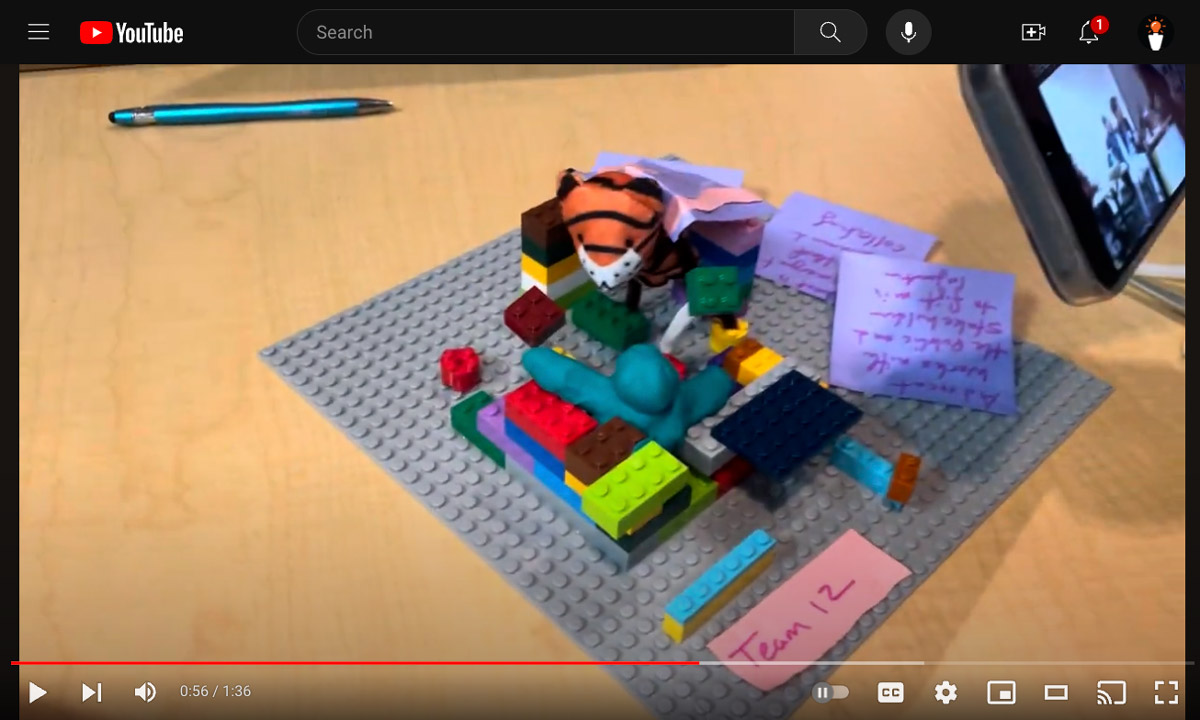Uniting for Advocacy: Enlisting Public and Policy Maker Support for LIS
A Novel Approach to Strengthening Information Services Through Strategic Partnerships
In an engaging presentation, the team redefined their problem statement to address a pivotal challenge: enhancing advocacy for the library and information science (LIS) profession to amplify the benefits of information services for all. Moving beyond the initial focus on empowering librarians to advocate for themselves, the team expanded their vision to include fostering partnerships with key stakeholders—namely, the public and policymakers—as advocates for the LIS field.
How might we help the public and policymakers advocate for the LIS profession to improve the benefits of information services for all.
Key Elements of the Proposal:
1. Broader Advocacy Vision: The team recognized the necessity of broadening the advocacy scope beyond librarians. By engaging both the public and policymakers, the strategy aims to create a stronger, more unified front in promoting the value and needs of the LIS profession.
2. Introduction of a Mascot, ‘Advocat’: To symbolize this concerted advocacy effort, the team introduced a mascot named ‘Advocat.’ This character serves as a rallying symbol for the battle against misinformation, embodying the spirit of cooperation and determination that underpins the team’s strategy.
3. Battling Misinformation: The choice of misinformation as the primary antagonist in this narrative highlights the critical role libraries and information professionals play in ensuring accurate, reliable access to information. Advocat, armed with the support of the public and policymakers, symbolizes the collective effort required to counteract misinformation effectively.
4. Strategic Partnerships with Stakeholders: The inclusion of the public and policymakers as partners in advocacy efforts underscores the importance of collaborative approaches in enhancing the impact of LIS services. These partnerships are pivotal in advocating for necessary resources, policy support, and public recognition of the value LIS professionals bring to communities.
5. Real-Life Application: The presentation suggests practical pathways for turning this narrative into actionable advocacy efforts. By leveraging the symbolic power of Advocat and fostering real-world collaborations, the team envisions a more engaged, informed, and supportive environment for the LIS profession.

This team’s presentation brings a creative and inclusive strategy to the forefront of advocacy efforts within the LIS field. By conceptualizing a united front against misinformation through the character of Advocat and emphasizing the importance of strategic partnerships, the proposal highlights the potential for significant advancements in the recognition and support of library and information services. This approach not only seeks to elevate the LIS profession but also addresses broader societal challenges related to information access and literacy, showcasing the vital role of libraries and information professionals in fostering an informed and engaged public.
Team 12 Members
Thanks to these project team members for their collaboration with DATALIS and their contributions towards innovating professional development.
• Mace Jones
• Katie Burns
• Erik Mitchell
Evaluate This Project
Please review the story and answer the five questions based on your knowledge, experience, and perspective. Your feedback will help us to innovate professional education that impacts recruitment, growth, and retention.
Implementation Roadmap
Phase 1: Planning and Development
- Define Advocacy Objectives
- Action: Clearly outline the goals of the advocacy campaign, focusing on increasing public and policymaker support for the LIS profession and combating misinformation.
- Steps:
- Identify key messages that highlight the value of LIS services.
- Determine specific outcomes, such as policy changes or increased public engagement.
- Design the ‘Advocat’ Mascot
- Action: Create a relatable and memorable mascot to serve as the campaign’s symbol.
- Steps:
- Collaborate with designers to develop the mascot’s visual identity.
- Ensure the design resonates with diverse audiences and embodies the campaign’s values.
Phase 2: Stakeholder Engagement
- Build Partnerships with Policymakers
- Action: Engage policymakers to advocate for the LIS profession and support information services.
- Steps:
- Organize informational sessions to educate policymakers on LIS contributions.
- Develop policy briefs that outline the benefits of supporting LIS initiatives.
- Mobilize Public Support
- Action: Encourage the public to become advocates for LIS services.
- Steps:
- Launch community events featuring ‘Advocat’ to raise awareness.
- Create educational materials that inform the public about combating misinformation.
Phase 3: Campaign Execution
- Implement a Multimedia Campaign
- Action: Utilize various media channels to disseminate the campaign’s messages.
- Steps:
- Develop content for social media, print, and broadcast platforms featuring ‘Advocat.’
- Share success stories of LIS services positively impacting communities.
- Facilitate Community Workshops
- Action: Conduct workshops to educate the public on information literacy and the role of LIS professionals.
- Steps:
- Partner with local organizations to host events.
- Provide resources to help individuals identify and combat misinformation.
Phase 4: Evaluation and Sustainability
- Assess Campaign Impact
- Action: Measure the effectiveness of the advocacy efforts.
- Steps:
- Collect data on public and policymaker engagement levels.
- Analyze feedback to identify areas for improvement.
- Ensure Long-Term Engagement
- Action: Develop strategies to maintain ongoing support for the LIS profession.
- Steps:
- Establish a network of advocates committed to promoting LIS services.
- Regularly update campaign materials to reflect evolving challenges and successes.
Summary
To implement Team 12’s advocacy strategy, institutions should develop a clear plan that includes creating the ‘Advocat’ mascot, engaging policymakers and the public, executing a comprehensive multimedia campaign, and conducting educational workshops. Continuous evaluation and efforts to sustain engagement are essential to ensure the long-term success of the initiative in strengthening support for the LIS profession and combating misinformation.
